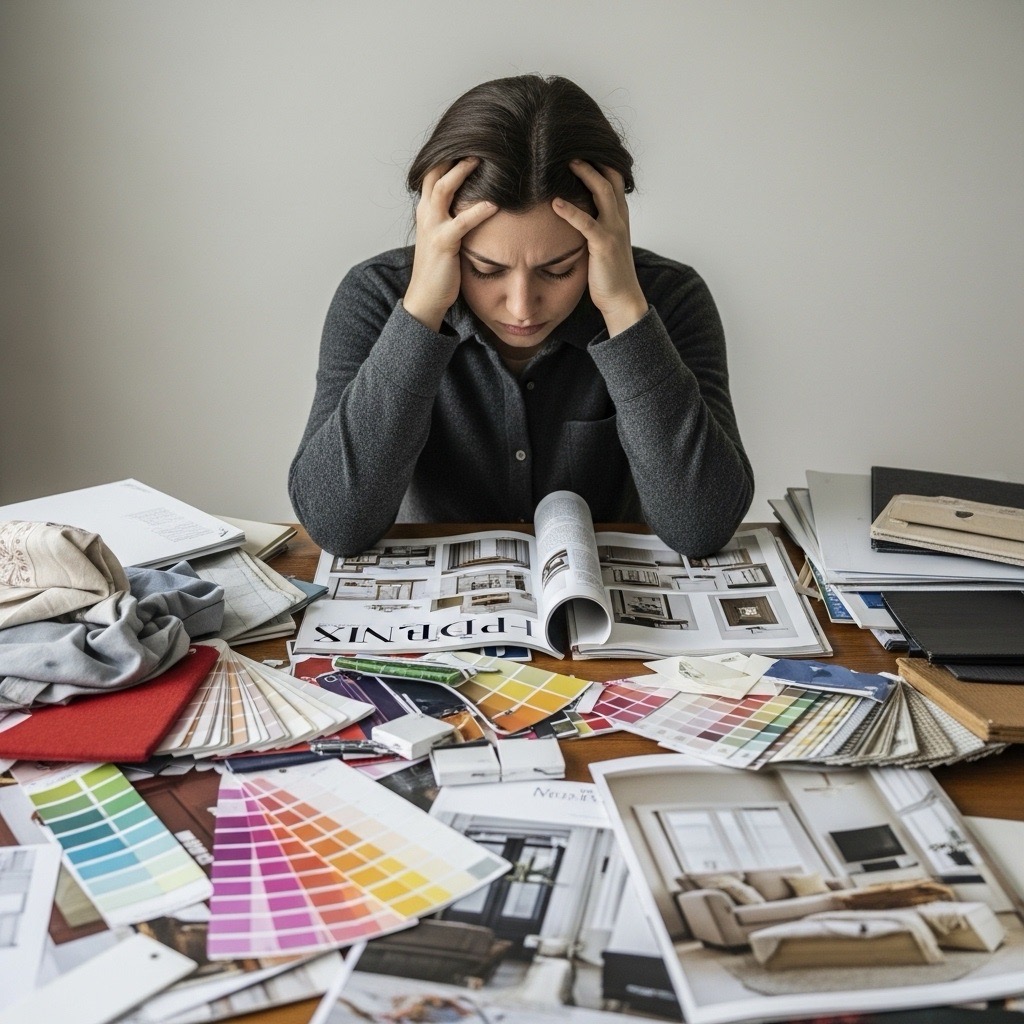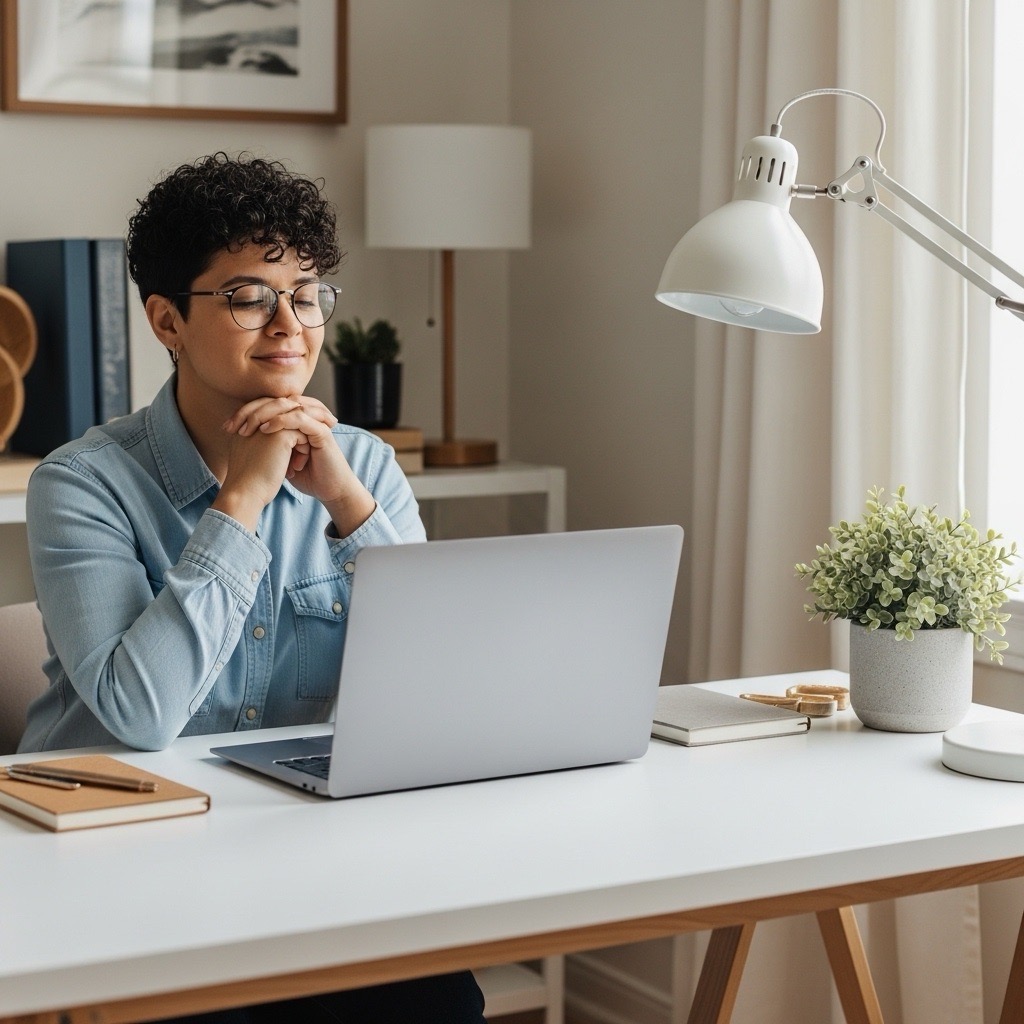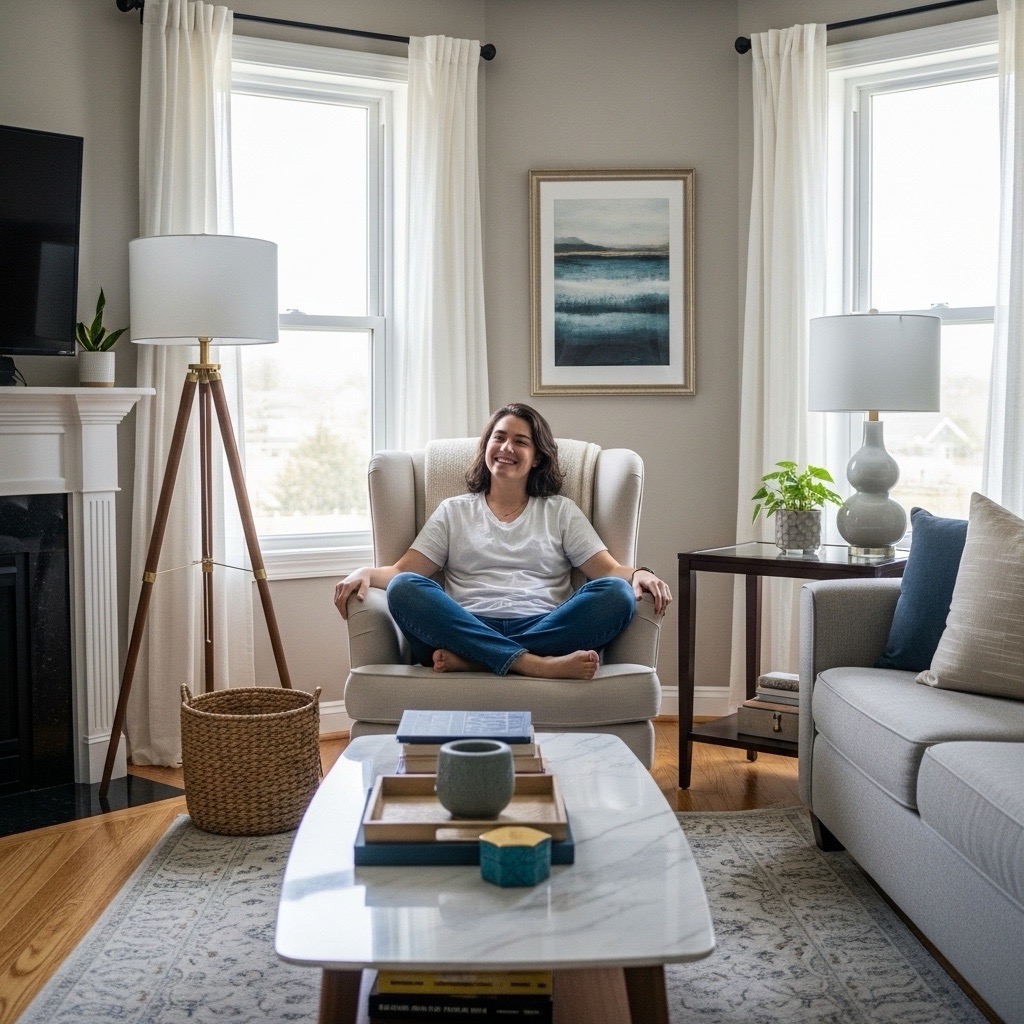The Hidden Psychology of AI Design: How Artificial Intelligence Reduces Decision Fatigue and Design Anxiety
You know that overwhelming feeling when you're standing in a paint store, staring at 847 shades of white, wondering if "Cloud Nine" is really different from "Whisper White"? Or when you've spent three hours scrolling through furniture websites, bookmarking dozens of sofas, only to feel more confused than when you started?
That's not just indecision—it's your brain experiencing what psychologists call "decision fatigue" and "choice overload." And here's the surprising truth: AI design tools aren't just changing how our rooms look—they're revolutionizing how we feel about the design process itself.

The Hidden Mental Cost of Traditional Design
Decision Fatigue: Your Brain's Silent Struggle
Every design choice—from wall color to throw pillow placement—requires mental energy. Psychologists have found that the average person makes about 35,000 decisions per day, and by evening, our decision-making abilities are significantly depleted.
Traditional interior design amplifies this problem exponentially:
- Paint colors: 1,000+ options per brand
- Furniture styles: Endless combinations of materials, colors, and sizes
- Layout possibilities: Dozens of ways to arrange the same pieces
- Accessory choices: Thousands of options for every surface
The result? Many people abandon their design projects entirely, living in spaces that don't reflect their personality or meet their needs—simply because the process feels too overwhelming.
Design Anxiety: The Fear of Getting It Wrong
Beyond decision fatigue lies a deeper psychological barrier: design anxiety. This manifests as:
- Perfectionism paralysis: "What if I choose the wrong color and hate it?"
- Imposter syndrome: "I'm not creative enough to design my own space"
- Financial fear: "What if I spend money on something that looks terrible?"
- Social judgment: "What will people think of my choices?"
These fears keep people stuck in uninspiring spaces, too paralyzed to make any changes at all.
How AI Design Transforms Your Mental Experience
From Infinite Chaos to Curated Clarity
Here's where AI design creates a psychological breakthrough. Instead of presenting you with endless options, our AI analyzes your space and presents exactly three carefully curated design directions.
The psychological impact is immediate:
- Reduced cognitive load: Your brain only has to process 3 options instead of 3,000
- Increased confidence: Each option is professionally validated and tailored to your space
- Eliminated regret: You're choosing between "good, better, and best" rather than "unknown, unknown, and unknown"
The Science Behind "Just Right" Options
Research in behavioral psychology shows that 3 options is the sweet spot for decision-making. It's enough to feel like you have choice and control, but not so many that you experience choice overload.

Our users consistently report:
- Faster decision-making: Minutes instead of hours or days
- Greater satisfaction: Higher confidence in their final choices
- Reduced stress: The design process becomes enjoyable rather than overwhelming
Breaking Through Design Imposter Syndrome
AI design acts as a confidence multiplier. When you see that a professional-grade AI system has analyzed your space and determined that "yes, this bold accent wall will work beautifully," it validates your design instincts and gives you permission to be creative.
User testimonials consistently mention:
- "I never thought I could pull off that color, but seeing the AI recommend it gave me the confidence to try"
- "The AI helped me realize I actually do have good taste—I just needed validation"
- "I stopped second-guessing myself because the AI had already done the analysis"
The Ripple Effect: How Better Design Decisions Improve Your Life
Reduced Daily Stress
When AI optimizes your space for both aesthetics and function, it creates what psychologists call "cognitive ease"—your environment supports your mental well-being rather than creating friction.
Real-world impacts:
- Better sleep: AI-optimized bedroom layouts improve rest quality
- Increased productivity: Thoughtfully designed workspaces reduce distractions
- Enhanced relationships: Comfortable, welcoming spaces encourage connection
- Improved mood: Living in a space you love provides daily emotional benefits
The Completion Effect
Perhaps most importantly, AI design helps people actually finish their design projects. The psychology of completion is powerful—living in a finished, intentional space provides ongoing satisfaction and reduces the mental drain of "unfinished business."

Breaking the Cycle: From Overwhelm to Empowerment
The Traditional Design Trap
- Overwhelm: Too many choices create anxiety
- Paralysis: Fear of making the wrong choice prevents action
- Procrastination: Projects get delayed indefinitely
- Dissatisfaction: Living in uninspiring spaces affects mood and confidence
- Repeat: The cycle continues with the next room or project
The AI Design Solution
- Clarity: AI presents curated, validated options
- Confidence: Professional analysis removes guesswork
- Action: Reduced friction enables quick decisions
- Satisfaction: Living in a space that truly works for you
- Empowerment: Success builds confidence for future projects
The Unexpected Mental Health Benefits
Reduced Comparison Anxiety
Social media has created a culture of design comparison that can be mentally exhausting. AI design helps by:
- Personalizing recommendations to your specific space and needs
- Removing the pressure to replicate someone else's style
- Focusing on function as much as aesthetics
- Validating your choices with professional-grade analysis
Increased Sense of Control
Having a space that truly works for you—designed with AI's analytical precision—creates a profound sense of control over your environment. This psychological benefit extends beyond the room itself, often improving overall life satisfaction.
The Joy of Quick Wins
AI design enables what psychologists call "quick wins"—small successes that build momentum and confidence. When you can transform a room in weeks rather than months, it provides immediate psychological rewards that motivate further improvements.
Beyond the Room: The Psychological Transformation
The most profound benefit of AI design isn't the beautiful room—it's the psychological transformation that happens when you realize you can create spaces you love without the traditional stress and overwhelm.
Users consistently report:
- Increased willingness to tackle new projects
- Greater confidence in their design instincts
- Reduced anxiety about home-related decisions
- More enjoyment of their living spaces
- Improved overall life satisfaction
The Science is Clear: AI Design is Better for Your Brain
Research in environmental psychology shows that our physical spaces directly impact our mental well-being. But the traditional design process—with its endless choices and potential for costly mistakes—often creates more stress than the final result relieves.
AI design flips this equation. By removing the psychological barriers to creating beautiful, functional spaces, it allows you to access the mental health benefits of good design without the traditional mental health costs of the design process.
Your Mental Well-Being Deserves Better Design
If you've been putting off that room makeover because the process feels overwhelming, you're not alone—and you're not stuck. AI design offers a path to the space you've always wanted without the stress you've always feared.
The next time you're feeling overwhelmed by design decisions, remember:
- Your brain wasn't designed to process infinite options
- Choice overload is a real psychological phenomenon
- AI design provides the clarity and confidence you need
- Great design should reduce stress, not create it
Ready to experience stress-free design? Upload your room photo to Style Blast AI and discover how AI can transform not just your space, but your entire relationship with design. Because life is too short to live in a space that doesn't make you happy—and too valuable to spend your mental energy on design anxiety.
Your well-being matters. Your space matters. And with AI design, you can have both without the stress.